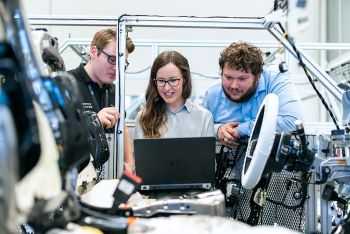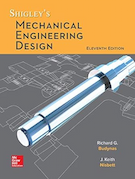The Benefits of Interdisciplinary Education in Engineering
Engineering is a vast and constantly evolving field, with new technologies, techniques, and materials emerging all the time. It's therefore essential that engineers stay up to date with the latest developments in their field and maintain a broad understanding of related disciplines. Interdisciplinary education can help engineers achieve this goal, leading to a more well-rounded, innovative, and effective approach to problem-solving. In this article, we'll explore the benefits of interdisciplinary education for engineers and provide tips for making the most of your continuing education investments.

Benefits of Interdisciplinary Education
In this section we explore the benefits of interdisciplinary education. By broadening their knowledge and understanding of related fields, engineers can develop a more comprehensive perspective and identify new solutions that would otherwise be overlooked. Additionally, interdisciplinary education can help engineers become more versatile and adapt quickly to new developments, making them more competitive in the job market.
1. Better Problem-Solving Skills
Engineers are often faced with complex problems that require a multidisciplinary approach to solve. By broadening their knowledge and understanding of related fields, engineers can develop a more comprehensive and creative perspective on these challenges. This leads to a greater ability to see the big picture and identify new solutions that would otherwise be overlooked.
2. Improved Communication Skills
Interdisciplinary education also helps engineers improve their communication skills. When working with colleagues from different backgrounds, it's important to be able to articulate your ideas clearly and effectively. By gaining exposure to a variety of perspectives, engineers can develop a better understanding of how to communicate with others and present their ideas in a way that's easily understood.
3. Enhanced Career Opportunities
Interdisciplinary education can also open up new career opportunities for engineers. By developing a broad understanding of multiple fields, engineers can become more versatile and attractive to potential employers. They may also be able to pursue new career paths, such as project management or consulting, that they may not have otherwise considered.
4. Keeping Pace with Technological Change
Finally, interdisciplinary education is essential for keeping pace with technological change. With advances happening all the time, engineers need to be able to adapt quickly to new developments and integrate them into their work. By gaining a broader understanding of related disciplines, engineers can stay ahead of the curve and remain competitive in their field.
Tips for Making the Most of Your Continuing Education Investments
In this section we'll explore some tips for making the most of your continuing education investments as you seek to broaden your skill set across multiple engineering disciplines. By following these tips, you can ensure that your investment in interdisciplinary education pays off and helps you achieve your professional goals.
1. Identify Your Goals
The first step in making the most of your continuing education investment is to identify your goals. What do you hope to achieve through interdisciplinary education? Do you want to expand your knowledge of a specific field, develop new skills, or explore new career opportunities? Having clear goals will help you make the most of your investment and ensure that you get the most value out of your education. If you are an engineer looking to advance your professional development along the technical career track, then you may want to consider some of the online engineering courses that we offer.
2. Seek Out Relevant Programs
Once you have identified your goals, the next step is to seek out relevant programs. There are a variety of options available, including online courses, in-person workshops, and certificate programs. Look for programs that align with your goals and provide the type of education you're seeking.
3. Review the Time Commitment
Before enrolling in a program, it's important to review the time commitment required. Many programs require a significant investment of time and effort, and it's important to make sure you have the resources and support you need to succeed. Consider factors like work schedule, family responsibilities, and personal commitments when deciding which programs to enroll in. The courses that we offer are all short-form and are designed to be completed within a brief time frame.
4. Focus on Practical Application
Practical application is an essential component of effective continuing education. Look for opportunities within your job or within your own personal projects to put your newfound knowledge into practice. Practicing what you've learned will help you consolidate your knowledge and develop a deeper understanding of the concepts you've studied.
5. Take Advantage of Mentorship Opportunities
One of the benefits of seeking education across multiple engineering disciplines is the opportunity to be mentored by experienced professionals in a wide range of specialties. Having access to multiple mentors allows you to gain insights into various aspects of the field, including best practices, problem-solving strategies, and career advancement opportunities. By working closely with experienced engineers, you can learn how to approach complex problems, how to manage projects effectively, and how to develop new skills and knowledge.
In addition, mentorship can provide opportunities for professional networking. Many mentors have extensive connections within their respective industries and can provide introductions to others in the field. This can help you establish valuable relationships and open doors for future career opportunities.
Finally, having a mentor can also provide a source of support and guidance throughout your professional journey. Mentors can help you navigate the ups and downs of your career, provide feedback and advice, and offer encouragement and motivation when you need it most.
PDH Classroom offers a suite of online continuing education courses tailored to engineers. These courses can be used to fulfill PDH credit requirements for maintaining your PE license, or just as a part of staying ahead in your field.
Seeking education across multiple engineering disciplines provides a wealth of benefits for engineers at all stages of their careers. By broadening your knowledge base and learning new skills, you can increase your value as an engineer and improve your ability to solve complex problems. Additionally, pursuing education in multiple disciplines can open up new career opportunities, increase your marketability, and provide opportunities for mentorship and professional networking. Whether you are just starting out in your career or are an experienced engineer looking to expand your expertise, investing in continuing education across multiple engineering disciplines is an excellent way to enhance your skills and achieve your career goals.




